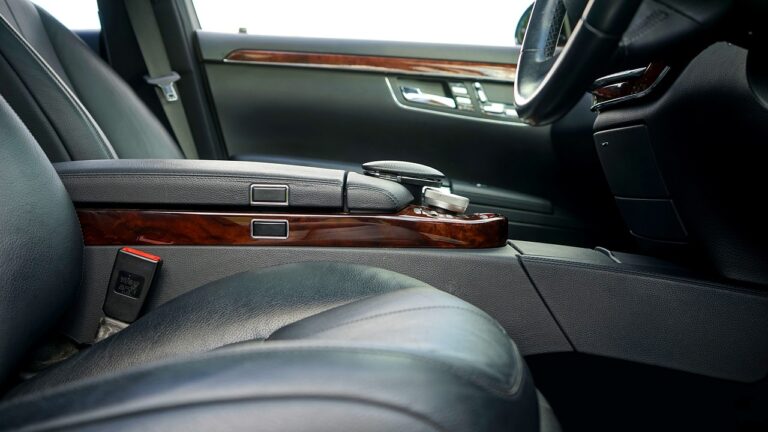The Influence of Automotive Air Conditioning on Vehicle Cabin Air Sanitization
betbhai, cricket99 exchange, diamondexch9.con:The Influence of Automotive Air Conditioning on Vehicle Cabin Air Sanitization
When it comes to driving in your car, comfort is key. And one of the most significant factors that contribute to your comfort level is the quality of the air inside your vehicle. With the rise of automotive air conditioning systems, drivers have the luxury of controlling the temperature and humidity levels inside their cars to ensure a pleasant driving experience. But did you know that your car’s air conditioning system can also play a role in sanitizing the air inside your vehicle?
In this article, we’ll explore the influence of automotive air conditioning on vehicle cabin air sanitization. We’ll discuss how air conditioning systems work to improve air quality, the benefits they offer, and some tips for maintaining a clean and healthy cabin environment.
How Automotive Air Conditioning Systems Work
Before we dive into how air conditioning systems impact air sanitization, let’s first understand how these systems work. Automotive air conditioning systems are designed to cool and dehumidify the air inside your vehicle. They use a refrigerant to absorb heat from the cabin and release it outside, effectively lowering the temperature inside the car.
In addition to cooling the air, air conditioning systems also help reduce humidity levels. High humidity can lead to moisture buildup inside the vehicle, creating the perfect breeding ground for mold, mildew, and bacteria. By removing excess moisture from the air, air conditioning systems can help prevent these harmful microorganisms from thriving.
Benefits of Automotive Air Conditioning on Air Sanitization
The primary benefit of automotive air conditioning on air sanitization is the reduction of airborne contaminants inside the vehicle. As the air passes through the air conditioning system, it is filtered and dehumidified, removing particles such as dust, pollen, and bacteria. This can help improve air quality and reduce the risk of respiratory issues for passengers.
In addition to filtering out contaminants, air conditioning systems can also help neutralize odors inside the vehicle. By recirculating the air and passing it through a cabin air filter, air conditioning systems can capture and eliminate foul odors, leaving the cabin smelling fresh and clean.
Furthermore, maintaining a comfortable temperature and humidity level inside the vehicle can also help inhibit the growth of mold and mildew. These microorganisms thrive in warm, damp environments, so by keeping the cabin cool and dry, air conditioning systems can help prevent mold and mildew from developing.
Tips for Maintaining a Clean and Healthy Cabin Environment
While automotive air conditioning systems can help improve air quality and sanitization inside the vehicle, it’s essential to take some additional steps to maintain a clean and healthy cabin environment. Here are some tips to help you keep your car’s interior fresh and sanitized:
1. Change the cabin air filter regularly: The cabin air filter is responsible for trapping particles and contaminants from the air. Make sure to replace it according to the manufacturer’s recommendations to ensure optimal performance.
2. Clean and disinfect air vents: Air vents can accumulate dust and dirt over time, leading to poor air quality. Use a soft brush or vacuum to remove debris, and then disinfect the vents with a mild cleaning solution to kill bacteria and eliminate odors.
3. Run the air conditioning system regularly: To prevent mold and mildew growth, run the air conditioning system at least once a week, even in the winter. This will help keep the system dry and inhibit the growth of harmful microorganisms.
4. Keep the interior clean: Regularly vacuum and clean the interior of your car to remove dirt, dust, and other contaminants. Pay special attention to carpets, upholstery, and other surfaces where bacteria and allergens can accumulate.
FAQs
1. Does running the air conditioning system with the windows open improve air sanitization?
No, running the air conditioning system with the windows open can introduce contaminants from outside the vehicle. It’s best to keep the windows closed while running the air conditioning system for optimal air sanitization.
2. Can automotive air conditioning systems prevent the spread of viruses and bacteria inside the vehicle?
While air conditioning systems can help filter out airborne particles, they are not designed to eliminate viruses and bacteria. It’s essential to practice good hygiene, such as washing your hands regularly and wearing a mask, to prevent the spread of germs inside the vehicle.
3. How often should I have my car’s air conditioning system serviced?
It’s recommended to have your car’s air conditioning system serviced annually to ensure it is working efficiently and effectively. A professional technician can inspect the system, check for leaks, and clean or replace components as needed to maintain optimal performance.
In conclusion, automotive air conditioning systems play a crucial role in improving air sanitization inside the vehicle. By filtering out contaminants, neutralizing odors, and maintaining a comfortable temperature and humidity level, these systems can help create a clean and healthy cabin environment for drivers and passengers. By following the tips mentioned above and practicing good hygiene, you can enjoy a fresh and sanitized interior every time you hit the road.







